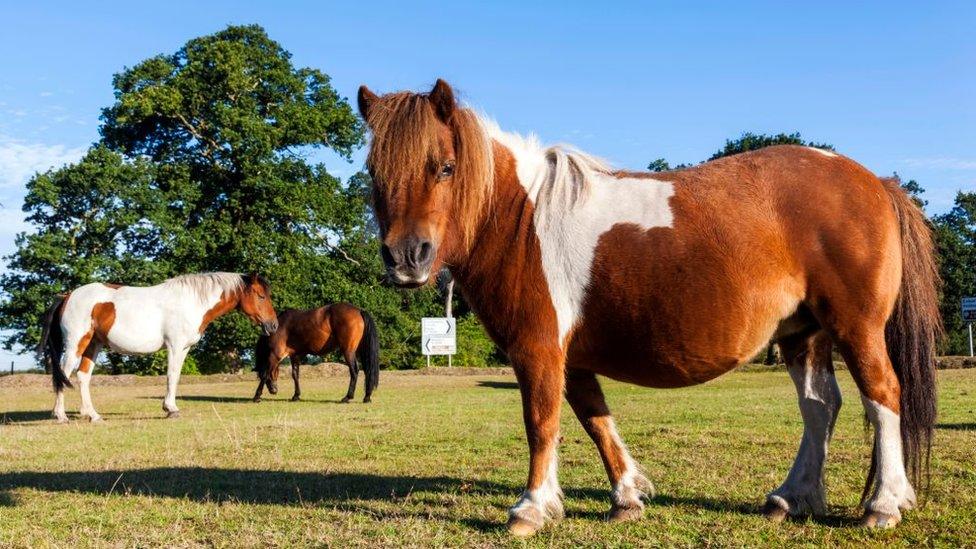Covid: New Forest BBQ ban ahead of staycation summer
- Published
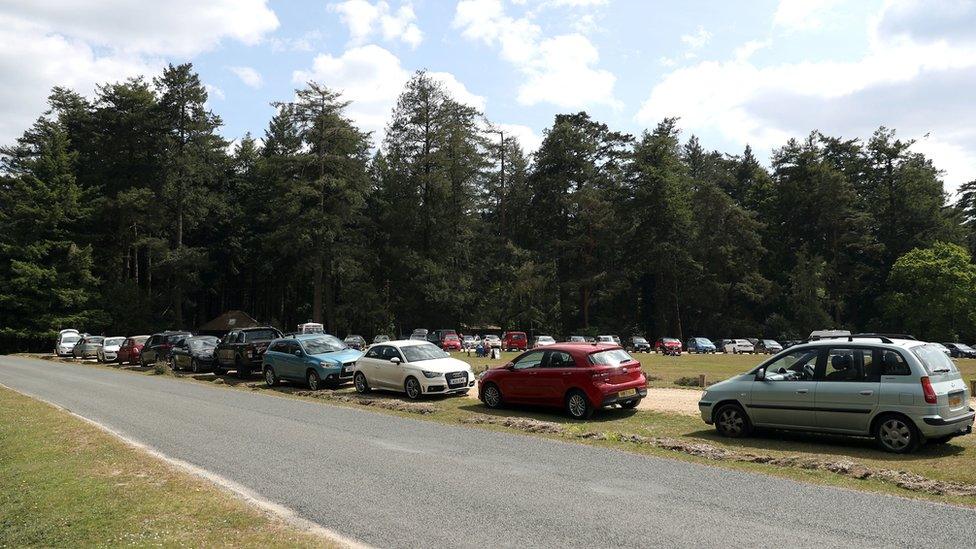
Visitor numbers soared when lockdown restrictions were eased last year
A ban on barbeques and more information signs are being introduced in the New Forest ahead of an expected staycation summer.
The moves, along with more volunteer patrols, follow an increase in anti-social behaviour and the disturbance of wildlife as lockdown eased last year.
The National Park Authority (NPA) has released its action plan in conjunction with other organisations in the forest.
It urged visitors to "care for the forest and care for each other".
Conservationists previously warned of "long-term degradation" if last year's influx of visitors was repeated unchecked.
Issues included motorists parking on verges, disturbance of sensitive habitats and BBQs on heathland.
As it stands, the stay-at-home rule will be lifted in England from 29 March, with further easing through April, May and June.
With foreign travel restricted, a staycation summer is widely expected to see an increase in visitors to national parks.
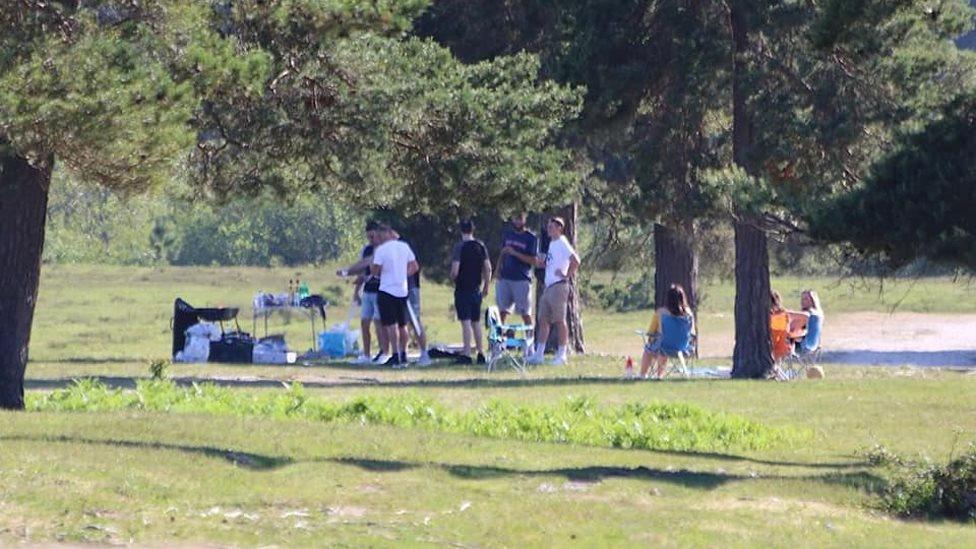
Visitors were seen having barbecues on open forest land last summer
The action plan has been compiled by the NPA, along with Forestry England, the Go New Forest tourism body, New Forest District Council, Verderers, police and fire service.
It promises more patrols from NPA and Forestry England rangers, along with teams of volunteers helping with litter picking and "reporting irresponsible parking".
The New Forest Code, external, which was launched last summer as a guide to how visitors and residents should behave, is set to be promoted through a public awareness campaign, along with "highly visible" signage.
'Amazing place'
Previously BBQs were permitted at certain car parks and picnic sites, but have now been banned outright.
Rangers and fire fighters dealt with more than 60 illegal BBQs in a single weekend last year.
Gavin Parker, chair of the New Forest NPA, said: "The New Forest is truly an amazing place and getting outside is a great way to boost our mood and our physical health.
"However, this cannot be at the expense of this precious place, which is a living, working forest."
Forestry England said it working with police to "monitor and address illegal activity".
It said it was "exploring the scope for taking further legal action", but said it was ultimately down to visitors to behave "legally and responsibly".

Follow BBC South on Facebook, external, Twitter, external, or Instagram, external. Send your story ideas to south.newsonline@bbc.co.uk, external.
- Published16 March 2021
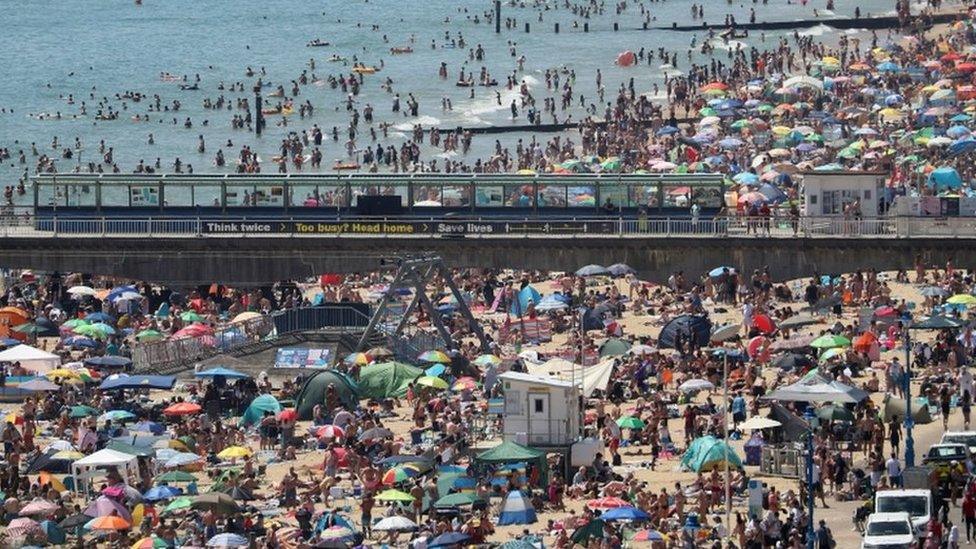
- Published10 March 2021

- Published25 February 2021
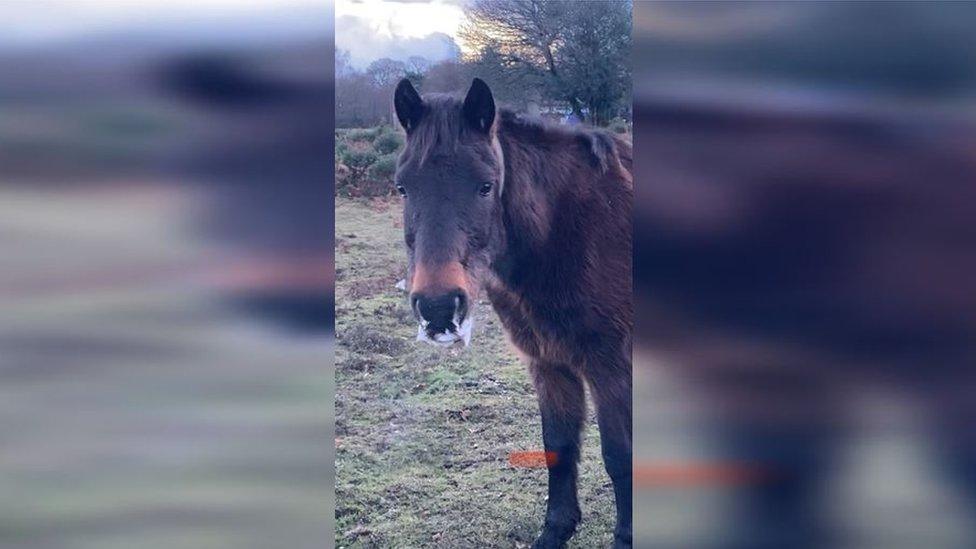
- Published30 May 2020
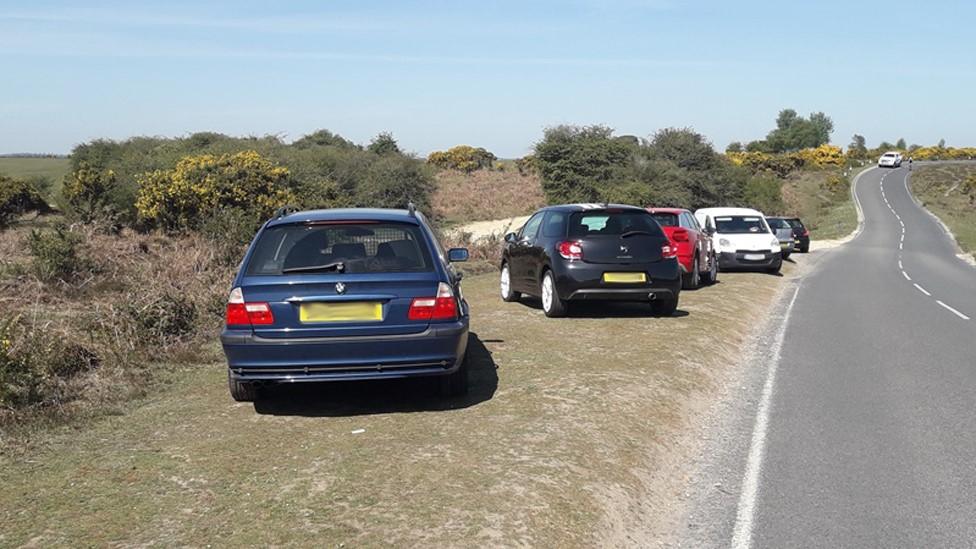
- Published25 June 2019
